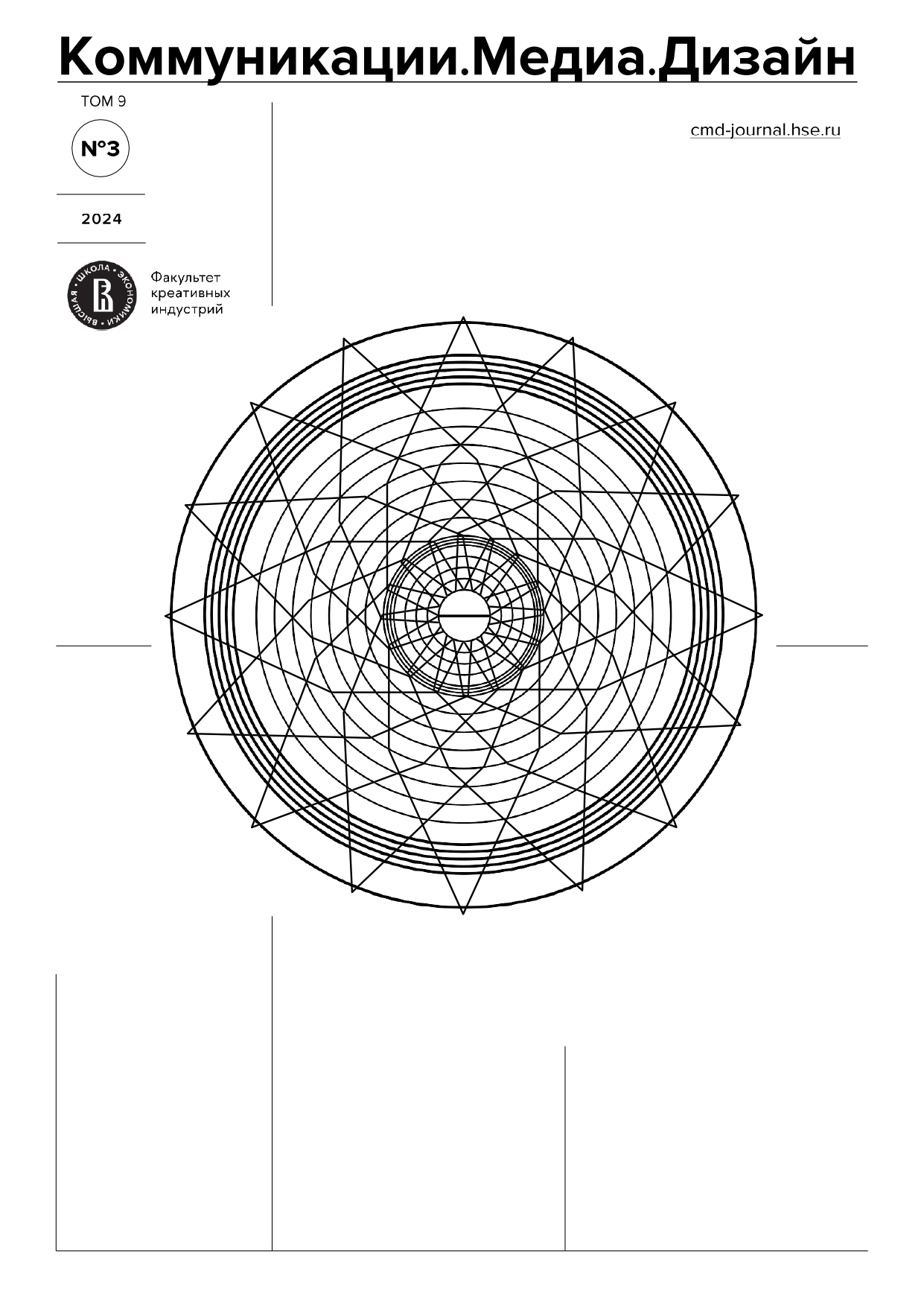Fashion That Not Exists: In Search of the Southern Urals Identity in the History of Regional Fashion
Abstract
The article explores the issue of identifying Russian fashion, which arises in the context of the departure of large international brands from the market. The current situation demonstrates that few Russian brands can effectively engage with their audience using successful marketing strategies, such as brand uniqueness, identity, and storytelling. To investigate the «cultural code» of the South Ural region from 1920 to 2020, the author seeks to answer the question of why the cultural code of fashion in the South Urals is so difficult to develop today. As a source of information, the author draws upon the history of industrial development in the specified period, as well as interviews with industry leaders and participants. The article examines how changes in production and consumer preferences have contributed to the emergence or disappearance of cultural codes of fashion in the South Ural region. A significant aspect of the work is the reflection on how, in the past 30 years, with the advent of the mass market and the integration of the European fashion system into the country, the cultural code was overwritten, and the local fashion brands were erased. The author concludes that the integration of the European fashion system has been minimal and has not encompassed the historical and semantic context of the region. Consequently, local fashion brands, with their limited presence, are unable to effectively promote their products. The author believes that the issue of the cultural code of the region remains significant and requires a fresh approach, based on an analysis of its own history and the uniqueness of the region.
Downloads
References
Аузан, А. (2022). Культурные коды экономики. Как ценности влияют на конкуренцию, демократию и благосостояние народа. АСТ.
Васильев, И. Е. (2014). Пути и способы формирования региональной идентичности в творчестве П. П. Бажова и А. П. Бондина. Известия Уральского федерального университета, 2(17), 18–26. https://elar.urfu.ru/handle/10995/25786?ysclid=m1no5twf2s983126742
Гальчук, Д. С. (2017). Понятие «Идентичность Личности». Вестник БГУ, 152(5), 44–51. https://doi.org/10.18101/1994-0866-2017-5-44-51
Иконникова, Н. К. (2010). Научный журнал: овеществление идей и социальных связей. Личность. Культура. Общество, 12(2), 55–56.
Папушина, Ю. (2019). Производство моды во времена позднего социализма: взгляд из провинциального Дома моделей. Теория Моды: Одежда. Тело. Культура, 54(4), 266–308.
https://www.nlobooks.ru/magazines/teoriya_mody/54_tm_4_2019/article/21895/
Рапай, К. (2015). Культурный код: как мы живем, что покупаем и почему. В Р. Пискотина (ред.). Альпина Паблишер.
Скрипов, А. С. (2000). Челябинск. ХХ век. Издатель Татьяна Лурье.
Эриксон, Э. (1996). Идентичность: юность и кризис. В Н. И. Самодина (ред.). Прогресс.
Chun, N., & Gurova, O. (2019). Place-Making the Local to Reach the Global: A Case Study of Pre-Helsinki. Fashion Practice, 11(1), 26–52.
https://doi.org/10.1080/17569370.2018.1507168
Real, M., Lizarralde, I., & Tyl, B. (2020). Exploring Local Business Model Development for Regional Circular Textile Transition in France. Fashion Practice, 12(1), 6–33. https://doi.org/10.1080/17569370.2020.1716546
Skov, L. (2011). Dreams of small nations in a polycentric fashion world. Fashion Theory - Journal of Dress Body and Culture, 15(2), 137–156.
https://doi.org/10.2752/175174111X12954359478609
Wang, Y. (2019). Local identity in a global city: Hong Kong localist movement on social media. Critical Studies in Media Communication, 36(5), 419–433.
https://doi.org/10.1080/15295036.2019.1652837
Wubs, B., Lavanga, M., & Janssens, A. (2020). Letter from the Editors: The Past and Present of Fashion Cities. Fashion Theory - Journal of Dress Body and Culture, 24(3), 319–324. https://doi.org/10.1080/1362704X.2020.1732012
Copyright (c) 2024 HSE University

This work is licensed under a Creative Commons Attribution 4.0 International License.

